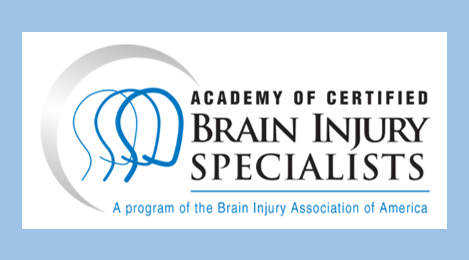Cognition & Memory
“It’s essential to tailor rehab to what impassions someone. The brain gradually learns by riveting its attention through endless repetitions.”
Cognitive problems include difficulties with brain based skills such as: attention, memory, orientation, organization, and problem-solving. These problems are often caused by brain injuries related to:
Stroke
Traumatic Brain Injury/Concussion
Neurodegenerative disease processes
Medical complications following lengthy Illness, such as COVID-19
When providing cognitive therapy, we work with the client and their family to improve cognitive skills AND to develop compensatory strategies that support improved function at home, school, and work.
Our cognitive therapy services are guided by Principles of Neuroplasticity and Adult Learning Theory. Neuroplasticity is the amazing ability of our brains to change (form new neural connections) throughout our lives, in response to experience, environment, and activities. Neuroplasticity is believed to be the basis for general learning in an uninjured brain and also for relearning (or rehabilitation) following a brain injury. Research in neuroscience has identified ten principles that seem to optimize the efficiency of neuroplasticity and that can be implemented to improve rehabilitation and maximize functional outcomes. Select this link for more information about the Principles of Neuroplasticity (NOTE: this link will open in a new window).
Adult Learning Theory is a set of assumptions about how adults learn best. This theory emphasizes the importance of problem-based, collaborative learning. Cognitive rehabilitation outcomes are optimized when adults are internally motivated and self-directed (e.g. when they are participants in developing treatment goals).
Contact us to learn more about cognitive therapy services and to schedule a free consultation appointment.

